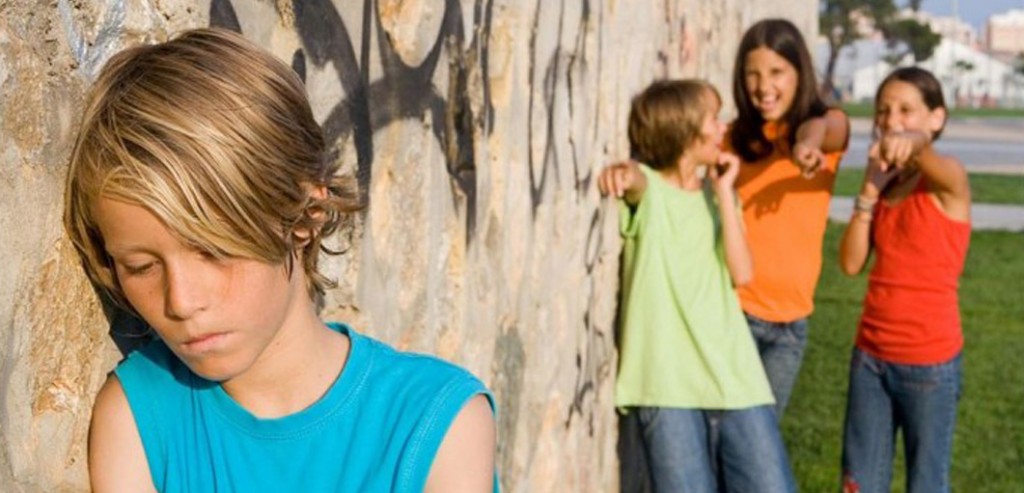Top New York Anti Bullying Lawyer
If your son or daughter, or anyone you care about, has been the victim of bullying in school, the law provides away to for you to stop the bullying and get justice for the damage inflicted. As a former school district lawyer and a top New York anti bullying lawyer, I know what buttons to press and where to push to get you and your child relief from bullying, including monetary damages.
What is Bullying?
As a child of the 70’s and 80’s, the term “bullying” had no meaning to me, even though, at different times, I was both a victim and perpetrator. We were expected to fend for ourselves without help from teachers or school staff. Over time, educators figured out that bullying is a real phenomenon that can cause serious emotional, psychological and physical damage.
Bullying is intentional, aggressive behavior by one student or group of students who single out another, often over a long period of time. Typically, there’s an imbalance of power, be it physical, intellectual or emotional. Bullying usually involves hitting or punching, teasing or name calling, or social exclusion/isolation. The imbalance of power can take several different forms, such as physical (the big kid picking on the little kid), social (the popular kid picking on the unpopular kid), economic (kids from wealthier families picking on kids who are less priveleged) or numeric (a group of kids picking on one kid for no particular reason).
But perhaps most common and painful, is when a student or group of students singles out a child based on his special needs, and then taunts and torments the child, and even inflicts physical abuse. Students who are or appear to be “different” are the bully’s favorite target. As you know, bullies never pick on someone their own size.
Is your child a victim of cyber-bullying?
Since the advent of the internet, cyber-bullying has become another form of abuse. It’s defined as the repeated, aggressive use of technology, such as the Internet, email, instant messaging, blogs, text messages or, more popularly, Facebook or Twitter, to harass, threaten or intimidate others. One example commonly used is on Facebook, where a group of students form a page on which they “publically” ridicule another student, sometimes with tragic
results. But this is far from the only form of cyber-bullying. Other forms include:
- Cyberstalking
- Masquerading as someone else and posting derogatory material
- Sharing intimate information
- Photoshopping a victim’s head onto someone else’s body
- Using the victim’s name to do an illegal or immoral act
Is your child being bullied? I can help. Contact me at 212-513-1300.
How can the law prevent bullying, and what can be done to make the victim whole?
In New York, the Dignity for All Students Act (“DASA”) imposes an obligation on public school districts to take reasonable steps to prevent bullying and to address it when it occurs with the goal of preventing it from happening again. The law requires school districts to appoint a specific person, either a teacher, guidance counselor or administrator, to act as the DASA coordinator. Acts of alleged bullying can be, but need not be, reported directly to the coordinator or to any administrator or teacher, who must then conduct an investigation to find out what happened and how to best address the situation.
In addition, the school district must take steps to prevent future bullying, such as separating the students or directing school staff to monitor their interactions. At the same time, school districts have an obligation to treat
the children who bully fairly too. However, serious consequences can result for the bullier, such as lengthy suspensions, expulsion or even criminal charges.
School districts have a special duty to supervise students and to train staff members to do so. School personnel are required to act in loco parentis, which means “in place of parents.” This means that a school district is required to act as a “reasonably prudent parent.” This obligation arises separately and apart from DASA and provides another avenue of recourse to parents of children who have been bullied.
As a former school district attorney, I’m uniquely positioned to help your child. I know how to get your school district’s attention and to make them act. If the damage has already been done, or if the school district fails to act appropriately and promptly, you may wish to pursue legal action against the district. I urge you to contact me if your child is now, or has been the target of bullying, or if he/she has been accused of bullying. The early intervention of an attorney has, in my experience, proved most effective in getting the school district to act quickly and decisively to stop the bullying.
Is your child a victim of hazing?
We’ve all heard about hazing rituals and the often tragic outcomes that result from them. Like bullying, the law provides protection for students who’ve been hazed or denied entry to a club, sports team, fraternity or sorority.
Typically associated with initiation into a college fraternity or sorority, hazing is similar to bullying, yet somehow is viewed as more benign because it is, to many, a right of passage, something everyone who wants to be accepted to the club has to endure. In that sense, students being hazed themselves often believe they have consented to the hazing. This is not the case. Individuals can’t consent to being hazed. Hazing is often about power and control. The inherent imbalance of power between the hazer (who is already in the club) and the victim (who wants to be in the club) is so great, consent can’t be voluntary.
Students seeking membership to a fraternity or sorority are exposed to humiliating and sometimes dangerous initiation rituals. But hazing isn’t limited to college students. It often occurs in high schools, typically involving underclassmen who are new to a sports team or club and are initiated by the upper classmen. There’ve been horrible examples of hazing over the years, often with tragic results. Hazing includes, but is not limited to any situation which:
- Creates a risk of injury to any individual or group
- Involves harassment of any individual or group
- Involves humiliation of an individual or group
Just because a majority of the members of an organization are not involved in a hazing incident doesn’t mean the organization as a whole isn’t responsible. It may well be that the fraternity or sorority, (both the local and national chapters), the school and the individual students (including their parents in some cases) who inflict the hazing may be held responsible.
Initiation rituals can be performed which are just as harmful when a student joins a team as a fraternity. This has been known to happen with the knowledge and tacit approval of coaches and school officials.
What to do if your son or daughter has been hazed:
If your son or daughter has been the victim of hazing, you should immediately complain to the school, club, team or organization in writing. Additionally, the assistance of experienced counsel can help protect the victim from future hazing and obtain relief from the Court, when warranted.
It would be my pleasure to help you in this situation and to obtain the best result possible. Contact me today

